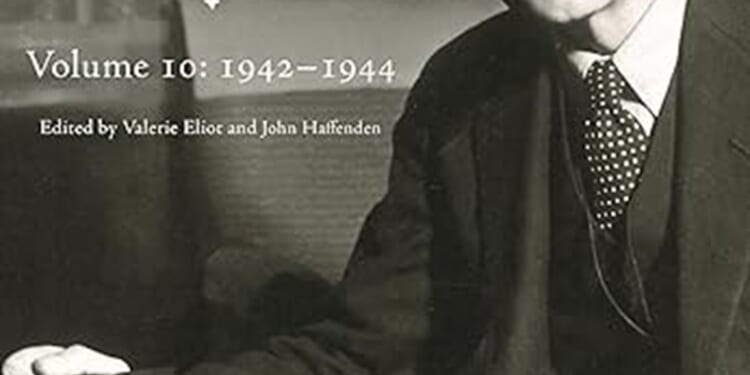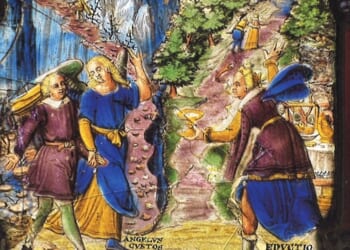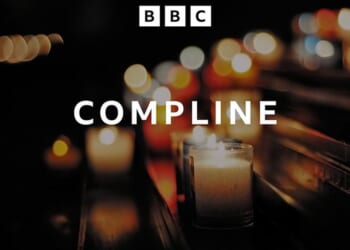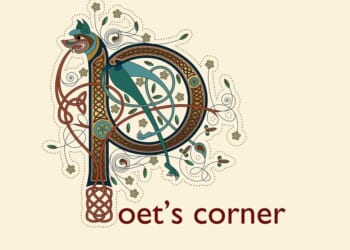THE period of these letters covers the time when Eliot was at the height of his fame as poet, critic, and Christian spokesman. They also reveal the very best side of his nature. Recent revelations about his brutal rejection of Emily Hale and the way in which he treated Mary Trevelyan and John Hayward when, towards the end of his life, he married Valerie Fletcher showed his ruthless side. But these letters show him as deeply caring about a range of individuals: for example, the son of Ezra Pound, who was at school in England when his father was broadcasting for the Fascists in Italy. Eliot met him, gave him money, and, over the years, arranged for him to have psychological treatment. One visitor to Eliot wrote: “I had not thought I would find him so gentle, so considerate, so kindly.”
Another example of his care for individuals is the long and very regular letters that he wrote to Hayward, his disabled former flatmate, who had to move to Cambridge to escape the bombing and was lonely. These letters, described by John Haffenden as “a tour de force of the art” — witty, mischievous and gossipy — reveal Eliot totally relaxed and frank about the people he did not like. A letter to another friend contains an interesting aphorism relevant to this. “A thoroughgoing gossip is usually discreet: it’s the people who never gossip who give things away.”
Another example of Eliot at his best is the extreme attention and care that he gave to books and poems that were sent to him to read or publish. The result was the kind of detailed criticism that can come only from a supreme effort of mental concentration. One feature of this is the way in which he could admire people and their work even if they did not share his faith, or he disliked them. He admired the scholarly work of C. S. Lewis, for example, though he disliked him as a person. Eliot’s strong likes and dislikes of particular people emerge in these letters.
The clue is in some words he wrote to Hayward: “I long since came to the conclusion that what makes nearly everybody tiring is that they are pathetic; I incline to think that what makes them pathetic is their illusions about themselves and about the world (in practice, the two kinds of illusion can hardly be separated).”
During this period, Eliot lived part of the week in London, where he did fire watching, and part in the country, where he tried to write. Too old to be called up, he saw his lecturing and writing as his contribution to the war effort, either keeping culture alive or encouraging potential allies, as when he lectured in Sweden. He found the travel, lecturing, and meeting people exhausting, but saw it as part of the struggle for European values.
This is the period when, after much struggle, he was finishing “Little Gidding” and when Four Quartets were published as a whole. Churchwise, it was the time when he opposed the South India scheme of reunion.
There are no great new insights in these letters about the developments in Eliot’s own faith, but they do reveal him becoming increasingly tired of being asked to combine with other Christians in some joint statement or call to action. The precision of language and meaning which he always asked of himself and others made him point out that Christians differ in the understanding of the faith, in the way in which they think this should be expressed politically, and in their temperaments. This made any collective response difficult.
The are many wise and illuminating insights in these letters, particularly on the nature of poetry, not least the notes that he made for a lecture that he gave on Walt Whitman.
Eliot’s political outlook does not fit the usual categories. He wrote: “I should not like to be called a ‘conservative’ myself.” But there is a clue in words that he wrote to Trevelyan. “What has given me solid satisfaction in life is the fact that I have never had any ambition. I was brought up to believe that the most one would possibly achieve was to be a Credit to the family.” His family was educated (his grandfather founded Harvard) with a super-strong sense of duty.
Again, he said that you do not get a civilised order “unless the superior individuals of the ruling class have the sense of individual moral responsibility also and succeed in imposing a kind of respect for it upon other members of the ruling class who do not themselves feel it”.
Once again, Haffenden has done a brilliant job with his exemplary introduction and the notes which are an education in themselves.
The Rt Revd Lord Harries of Pentregarth is a former Bishop of Oxford. He is the author of Haunted by Christ: Modern writers and the struggle for faith (SPCK, 2018).
The Letters of T. S. Eliot: Volume 10, 1942-1944
Valerie Eliot and John Haffenden, editors
Faber & Faber £60
(978-0-571-39649-8)
Church Times Bookshop £54
















